I have been living in The Hague for nearly two months now. It is a great location considering how close it is to other major European countries. This makes it very easy to travel by plane, train, or even bus. So far, I have traveled to several different cities and countries. Amsterdam’s airport is close by and has flights to almost every city you could think of. Many of these flights are affordable for a college student looking to do some traveling.
Up until my trip abroad, I have never stayed in a hostel. When the word hostel came to mind, I imagined a giant room with an endless row of metal bunk beds. The hostels we have stayed at have been nothing short of great. Some are right in the middle of the city, some are on the outskirts. You can use sites like booking.com and Hostelworld to find a hostel. Usually, it costs around 15 to 30 Euros depending on the day and location. Often times, the price includes a free breakfast. A good rule of thumb to follow is to pick a hostel that has at least an 80% rating on the website.
Hostels are an interesting place to meet other travelers. It is almost like getting a random roommate every time you stay in one. In most cases, the rooms are mixed which means you can have roommates of the opposite gender. More often than not, many hostels also have different room types to choose from. Some offer a big room like ten or more beds, some offer smaller rooms for two to four people. The smaller rooms usually cost a bit more. Some of the smaller rooms have a private bathroom in them while the bigger ones have to use a community bathroom. Hostels are basically a cross between hotels and dorms.
The people working at the front desk are usually pretty good resources when it comes to finding out the local spots to hang out or get something to eat. Two things I would invest in when staying in hostels are a lock and a small towel. Every hostel has a locker in the room for you to use. But they do not give you a lock to use. I recommend bringing your own lock, something smaller than a combination lock as those are usually too big. Also, you do not want to carry around a normal sized towel when you are traveling. You want to travel light and a big, bulky towel will not help. Something like a swimmer’s towel or a small washcloth works. It is light and gets you dry enough.
I hope this gives you a better idea of what to expect when staying at a hostel. If you have any questions or comments, let me know and I will get back to you. Thanks for reading!
Chiraag Bhimani
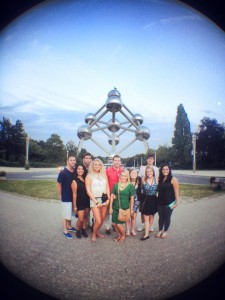
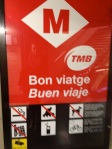
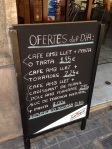
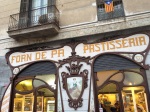


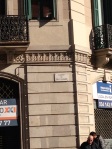

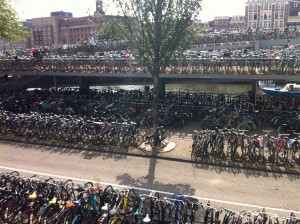 People bike starting at a young age because there are no school busses, so that is the form of transportation for young students. It’s not so much a choice of transportation as it is a life style. Here in Holland people bike well into their 70’s and 80’s. Holland is geographically very flat and that combined with their mild summers and winters paves the way for a great biking opportunity that the Dutch have clearly taken advantage of.
People bike starting at a young age because there are no school busses, so that is the form of transportation for young students. It’s not so much a choice of transportation as it is a life style. Here in Holland people bike well into their 70’s and 80’s. Holland is geographically very flat and that combined with their mild summers and winters paves the way for a great biking opportunity that the Dutch have clearly taken advantage of.